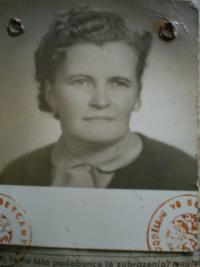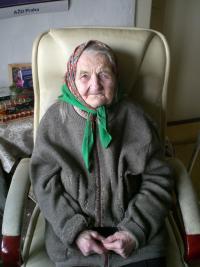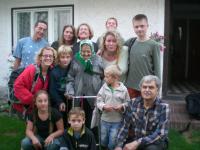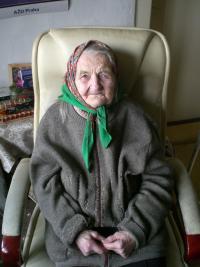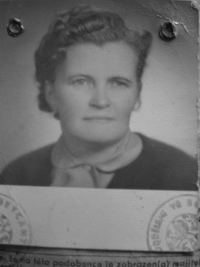The boys had not one, but a hundred of guardian angels

Download image
Anna Straková was born February 5, 1922 in Čilá on the Berounka river in the Rybáček family, who were farmers. During the Protectorate, the family joined the anti-Nazi resistance movement, and so did her husband-to-be František. The young couple moved to the farm in Mlečice after their wedding. After February 1948 they refused to join the Unified Agricultural Cooperatives. Subsequently they were labelled as kulaks and František was imprisoned. After his release from prison he was no longer permitted to live in the village. He therefore worked in non-skilled professions in the Škoda factory in Pilsen, and later he retired and began receiving a disability pension. The family was constantly bullied by the authorities in Mlečice. Various penalties were imposed upon them, and their property was sold in an auction-sale. Anna Straková eventually joined the cooperative in 1957 or 1958.
